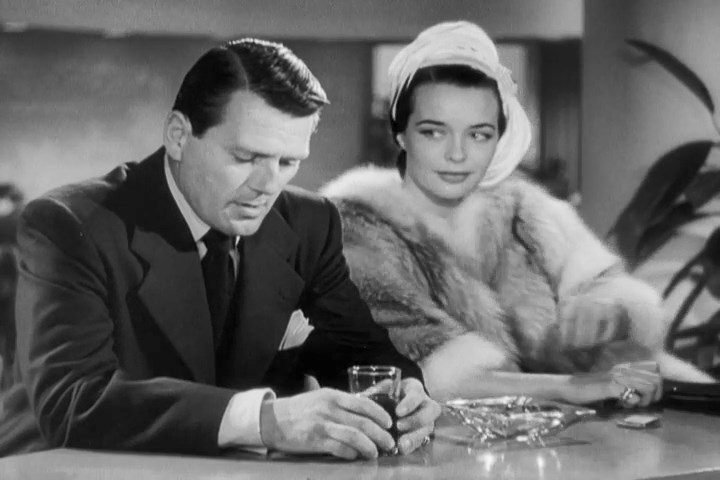Classic Film: Roadblock
Written by Ian Thomas Malone, Posted in Movie Reviews, Pop Culture
The American Dream has never really been able to shake its problematic relationship to the never-ending wheels of capitalism. A happy, content life, is never enough. The accumulation of wealth, flashy goods, and above all else, status, is the ugly reality of our nation’s most treasured ideals.
The 1951 film Roadblock examines a previously content life shaken off the straight and narrow path. Joe Peters (Charles McGraw) is a skilled insurance detective, working in tandem with his partner Harry Miller (Louis Jean Haydt) to track the loot stolen from a bank robbery. On his way home to Los Angeles, Peters makes the acquaintance of Diane (Joan Dixon), who pretends to be his wife in order to secure a discounted rate on her plane ticket.
Peters and Diane have an innate chemistry fueled by the former’s insecurities toward his middle-class life, and the latter’s unabashed gold-digging. Diane enjoys the finer things society has to offer, and doesn’t care what shady men she associates with on the path to riches. Peters’ monthly $350 income simply can’t sustain the life she’s accustomed to, throwing him off the straight-and-narrow path. Peters makes a deal with known criminal Kendall Webb (Lowell Gilmore) to rob a mail train, his share of the potential haul being more than enough to keep Diane happy for the rest of their lives.
Director Harold Daniels assembles all the pieces of a rich noir thriller, but Roadblock never really builds on its compelling deconstruction of American capitalism. The mechanics of the plot eat up much of the film’s brisk 73-minute runtime, leaving little space to explore the film’s interesting themes. The transformation of Diane from status-obsessed to a voice of reason within Peters’ life is handled far too haphazardly to be believable.
McGraw is a serviceable lead, but most of Roadblock’s best scenes feature Peters acting as a foil to the supporting cast. Dixon and Gilmore put forth performances that far exceed the stock nature of their characters. Haydt in particular is easily the most underutilized, bringing an edge to Miller that is never adequately explored. Too much of Daniels works feels paint-by-numbers, an unfortunate state of affairs for the substantive core of the narrative.
The film features an interesting chase scene along the LA River toward the end, perhaps the best encapsulation of the narrative’s wasted potential. B-movies don’t necessarily need to shoot for the moon, but it’s hard to forgive Roadblock’s many shortcomings when a talented cast and compelling themes are so terribly wasted in service to nothing at all.











